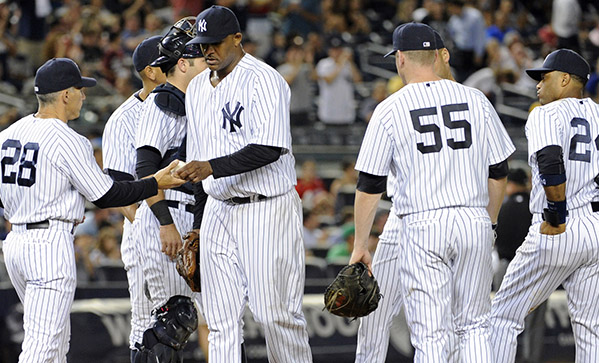Every September, we look at all the great talent out there in the NHL and say “Know what? Plan the parade!” Then comes March. And sadness. And shame. And how the hell could so many great players be so cumulatively terrible?
Well, according to a study in Psychological Science, some teams might just have too much talent. Sounds like a good problem to have? Not so much.
“Most people believe that the relationship between talent and team performance is linear – the more their team is packed with talent, the better they will do,” explains Roderick Swaab, one of the study’s authors. “Yet our latest research documenting a ‘too-much-talent effect’, reveals that for teams requiring high levels of interdependence, like football and basketball, talent facilitates team performance . . . but only up to a point. Beyond this point, the benefits of adding more top talent will decrease and eventually hurt the team performance because they fail to coordinate their actions.”
Interdependence is key here—sports without a lot of interdependence, like baseball, don’t seem to suffer the same way, which explains the Yankees.
How’d Swaab and company get there? They analysed data from the FIFA World Cup 2010 and 2014 qualifying periods, and the 2002-2012 NBA and MLB seasons. Basically, they figured out which players were elite (using things like Estimated Wins Added in basketball and Wins Above Average in baseball), crunched it with data about team coordination, and figured out how well teams did compared to the amount of talent they had at their disposal.
“Like sports teams, teams in organizations vary in their levels of interdependence. When team success merely depends on the accumulation of individual performance (e.g. sales teams), hiring and staffing could simply focus on getting the most talented individuals on board,” Swaab explains. “However, these same strategies can hurt a willingness to coordinate effectively when team success depends on high levels of interdependence (e.g. strategy teams). When interdependence between team members is high, organizations could either hire a better mix of top talent and non-top talent and/or invest more in training to formalize roles, ranks, and responsibilities.”


